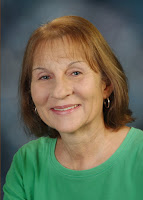 | |
| Our Guide |
Writing novels is like hunting for
gems.
Several years ago, my mother and I
went gem hunting in North Carolina two years in a row. The first year, we went
to Hiddenite, one of those if-you-blink-you-miss-it towns, to sluice and pan
for a variety of gems and to dig for emeralds. The mine was located out in the
boonies, even more remote than the town itself. As I drove down the bumpy dirt
road to get to the office, I passed chickens, a couple of stray dogs and a
rooster.
When I finally spotted the long, covered
sluice line surrounded by stacks of buckets filled with unprocessed, virgin
ore, I was excited about what we might find. We sat at the sluice line for
hours, sifting through the dirt and, not having any luck, decided we would try
our hand at digging for emeralds.
It was an incredibly hot day in August; sweat poured off of us as we trudged up hills, carrying heavy shovels and buckets. Again, no luck. We ended up sitting in the creek, panning for gems, letting the cool water wash over us. We didn’t find any “quality” gems there either but we learned a lot on that trip and had a lot of fun.
It was an incredibly hot day in August; sweat poured off of us as we trudged up hills, carrying heavy shovels and buckets. Again, no luck. We ended up sitting in the creek, panning for gems, letting the cool water wash over us. We didn’t find any “quality” gems there either but we learned a lot on that trip and had a lot of fun.
Our next trip, the following May,
was to Franklin, which is advertised as the “Gem Capital of the World.” I’d
done my homework and I was determined that, this time, we would find what we
were looking for. We went to several different mines in search of star
sapphires (referred to as "North Carolina rubies") but, after three days, we still hadn’t found any of the precious gems
and we were beginning to get discouraged.
Our last day there, it rained on and
off and was damp and chilly. We sat at the sluice line, shivering, with our
hands submerged in the cold, running water, rinsing off and inspecting hundreds
of rocks. By the end of the day, we had each found some stones, which we
thought were promising, but we weren’t certain that they’d amount to anything.
So, on our way out of town the next morning, we stopped at a local gemologist’s
shop. Our suspicions were confirmed; we’d each found stones that we would later
have cut and polished to produce beautiful, star sapphire rings!
Like gem hunters, we writers often
have to sort through a lot of ideas, discarding most of them, before finding
one that is worth keeping and developing into a novel but, as we write our
story and, especially, when we finish it, we know that it was well worth it.
And then, we do it again!



